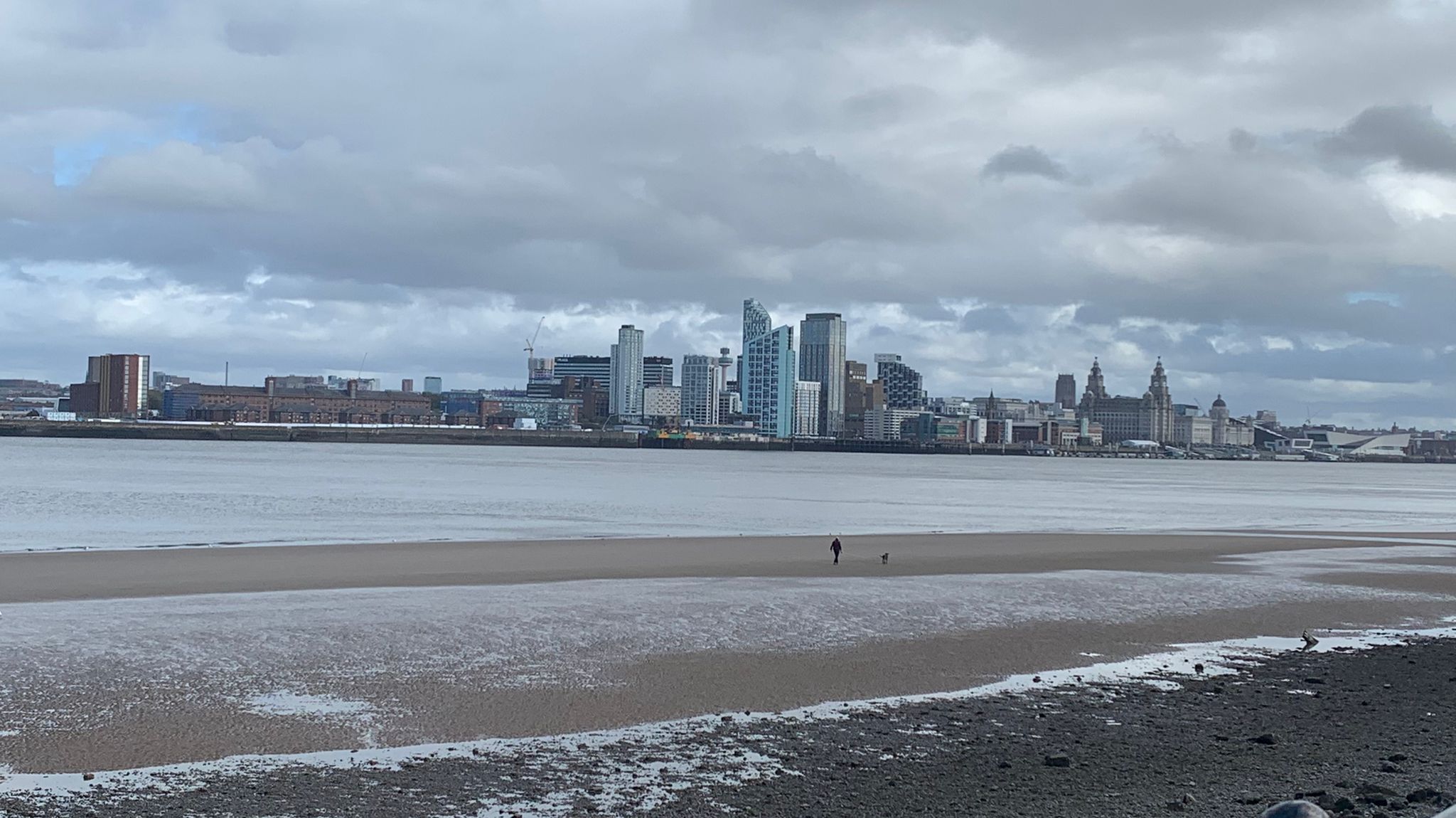April Lloyd
It’s the news Scouse Eurovision fans have been waiting for: Eurovision is coming to Liverpool. It is also the news snobs have learnt to dread; after all, Eurovision is coming to Liverpool. The snobs of old are back in force to critique the decision to hold Eurovision in Liverpool.
In a city that welcomes just about all wanderers of the world, classism always has the door slammed in its face.
Rightfully so. Yet Liverpool’s appointment as 2023 Eurovision host not only shows classism is still alive and kicking. Rather, classism is thrust centre-stage, away from the first-class seats and in the audience’s plain sight. It even sat in Mersey Ferry seats as I made my journey to work.
“Better watch myself around you,” an East Anglican woman quipped as a Scouser opposite picked up a work call. She sniffed and hid away in her woollen fleece, rolling up a cigarette.
Smoke irritates me, personally — but no matter. I asked her what she thought about Eurovision taking place in Liverpool and Glasgow coming close second as a host city. The smile on her face widened, creases furling in her eyes as gentle scoffs tippled over her lips.
“Heavens knows why; isn’t it usually hosted in capital cities? And Liverpool and Glasgow are fun places to visit, but it’s hardly world-class. I mean, there’s no Ritz, for starters. It’s got no history.”
Anchoring my instinct to push her in the Mersey, I wonder: is the irony of being on a whole vessel full of Scousers lost on her?

Unusual settings: Liverpool or Glasgow
There’s one thing that haughty passenger did get right this morning: Liverpool hosting Eurovision is an unusual occasion.
After all, over the past four decades, Eurovision traditionally made itself at home in capital cities, with only a handful of exceptions. Liverpool also celebrated when Glasgow, another fantastic working-class city, made the final.
One eyebrow was raised when Billy Garrett, director of Sports and Events at Glasgow Life, told BBC Radio 4 they had ‘secret weapons‘ against Liverpool – but, compared to all the classism witnessed, this is all water under Runcorn bridge.
“stereotypes and discrimination seeped through the moment Glasgow and Liverpool made the nomination list”
So, to join the swathe of crowds at Bank Arena or hordes at the Hydro? To Liverpudlians and Glaswegians, it mattered not.
After all, for all our football rivalry and banter, Liverpool and Glasgow are sister cities.
Both cities have their own sense of individual identity and self-governance, a badge both Glasgow and Liverpool wear with pride. Both are former European Capitals of Culture and have a history of deprivation and class poverty caused by systems set by the UK.
But as the splattered mud dries off, we realise that we’re both underdog cities. In many ways, stereotypes and discrimination seeped through the moment Glasgow and Liverpool made the nomination list – classism reared its ugly head.
Broadcaster Sophie Corcoran, a proud Thatcherite and young Conservative leader, tweeted sceptically: “Why did we choose two cities who hate the UK to be the two potential host cities for Eurovision?”
Liverpool, a city that calls themselves Scouse not British and who we couldn’t even trust to properly and respectfully mourn the queen has won Eurovision hosting duties.
How?
— Sophie Corcoran (@sophielouisecc) October 7, 2022
Glasgow and Liverpool are chock full of culture
Should Sophie ever brave the trip to Liverpool, I suggest she make her way to the Museum of Liverpool at the Pier Head.
There lies an engraving. It reads The magic of Liverpool is that it isn’t England. These words were by former Granby councillor Margaret Simey back in 1999. Liverpool and Glasgow reject traditional national identities and view their city as separate entities. Plus, surprise; Simey herself hailed from Glasgow.
Two roads from my doorstep in Liscard are the legendary Mother Redcaps, a haunt for pirates and smugglers. Mother Redcaps was Wirral’s calling to Robin Hood, where pirates and vendors stole a variety of goods to distribute and sell to the poor.
There’s also snobbery surrounding Ben Lawrence’s article in The Telegraph.
Lawrence compared Liverpool to a ‘cultural wasteland’. While taking a pro-Glasgow stance, the egregious claim that Liverpool lacks “galleries of national significance” prompted a guided Twitter tour by Walker Gallery Liverpool to crunch down the numbers.
What’s more, Liverpool has the most public sculptures in the UK outside of Westminster. Steve Rotheram, the Metro Mayor of Liverpool, called for a full retraction of the piece.
This is outrageous. We want a full retraction and for the ‘journalist’ to set the record straight. Our MPs will be asking questions about this deliberate attempt at misinformation.
— Steve Rotheram (@MetroMayorSteve) September 29, 2022
Are the working-class good enough for Eurovision?
Jibes made to the working class in the Eurovision discussion do not sit well with me. I was born and raised in Liscard, a mile away from the River Mersey’s glittering riverside.
Like many in my Liverpudlian community, I’m no stranger to poverty.
By the 1980s, Liverpool was in a bad way both economically and socially, synonymous with unemployment, crime and drugs. When the Toxteth riots went into full swing, Thatcher considered writing off Liverpool but instead enacted policies driving a ‘managed decline of the city’.
Those scars did not heal overnight in the 90s. I remember how my parents, hit hard in their teens by the employment blackspot in the 70s, reinforced survival tactics in the early 90s to keep my sisters and me clothed, fed and warm.
No money meant no washing machine; I have previously touched on how I used to wash my hair with dishwater liquid because we couldn’t afford shampoo. That classism has not disappeared. When a recruitment ad from Morrisons jokingly banned Scousers from applying, the stage light on classism shone ever brighter.
The Accent Question
“The class snobbery fuelled by accent discrimination is desperately unfair.”
There is not only classism engrained against us as a city but also against our accents too. Statistically speaking, the accents and dialects the British public perceive as ‘ugly’ often belong to low-status groups.
A ComRes poll in 2013 found the Scouse accent was considered ‘unfriendly, unintelligent and untrustworthy.’ Meanwhile, Glasgow’s accent is described as ‘violent’ and ‘raw’, dashed with a speckle of ‘hard-man’ attitudes.
The classism engrained in accent discrimination is desperately unfair. However, one thing is worth remembering. Aesthetic opinions concerning language systems are neither objective nor based on linguistic knowledge. They are subjective, social, and haunted by classist stereotypes.
The classism of others does not define us.
Classism does not define our culture. If you need some culture, Liverpool has got plenty to spare.
Despite scores of tales and historic chronic deprivation, culture and history in Liverpool and Glasgow are as perennial as the grass.
Liverpool, having achieved European Capital of Culture status in 2008, saw 500,000 people flocking to St. George’s Hall. The streets were electric with the undercurrent of civic pride, a memory none of us have forgotten in Liverpool.
“We are who we are, and we’ve always been good enough.”
All these debates will no doubt come into play when Liverpool hosts Eurovision.
Will presenters and reporters have Scouse accents, rather than the Received Pronunciation accent? My guess: is it’s unlikely. But I remain hopeful about what our city has to offer in the face of classism.
Our Georgian buildings will continue to enthral. Our grand docks, towering cathedrals, and bewitching museums will all still provide ample entertainment.
At the end of the day, neither Glasgow nor Liverpool have ever looked to London for inspiration. We are who we are, and we’ve always been good enough.
If you feel Liverpool or Glasgow are too “working class” or “anti-establishment” to ever host a Eurovision contest…
Please, keep that classism to yourself.
Feature image courtesy of Artem Page on Unsplash. No changes were made to this image. Image license found here.


Strong piece and a robust argument. Liverpool and Glasgow have always been neglected, ignored and pushed aside, and it’s not just in music. I remember being put off from a job interview in a prestigious university because they told me, “I hope you don’t write the way you speak.”
It’s also worth noting that Glasgow went through its fair share of poverty in the 70s too. It was also a Capital of Culture in the 90s, and Glasgow has one of the largest religious divides in the country. You wouldn’t believe some of the conversations I’ve heard slating Glaswegians, just for the sake of daring to put their names forward. It’s nothing more than a pure disgrace, and with a history like ours you’d be hardpressed to find someone who hasn’t had noses turned on their city’s culture, their achievements, etc. We’re all just seen as dirty, working class thieves sadly, and anyone who says it doesnt exist needs to either give their head a wobble, or. get reborn as a Liverpudlian, Glaswegian, or pretty much every other working class city.
This doesn’t get talked about enough. We get a lot of down cast looks because we’re not rich enough to hold a competition. This is an attitude nationwide, and it piba down the question: are we an equal nation?
We’re seen as thieves, chavs. It’s not on.